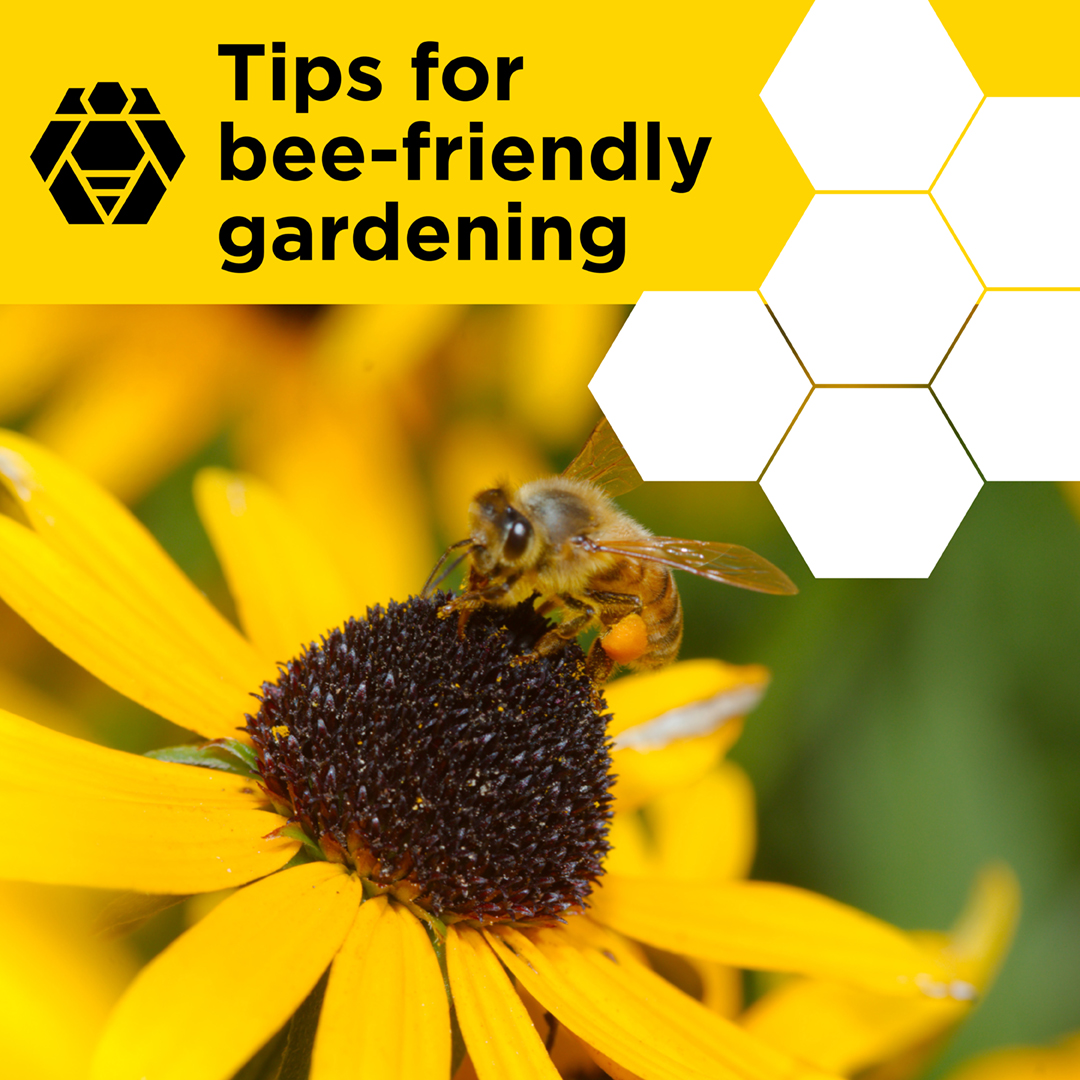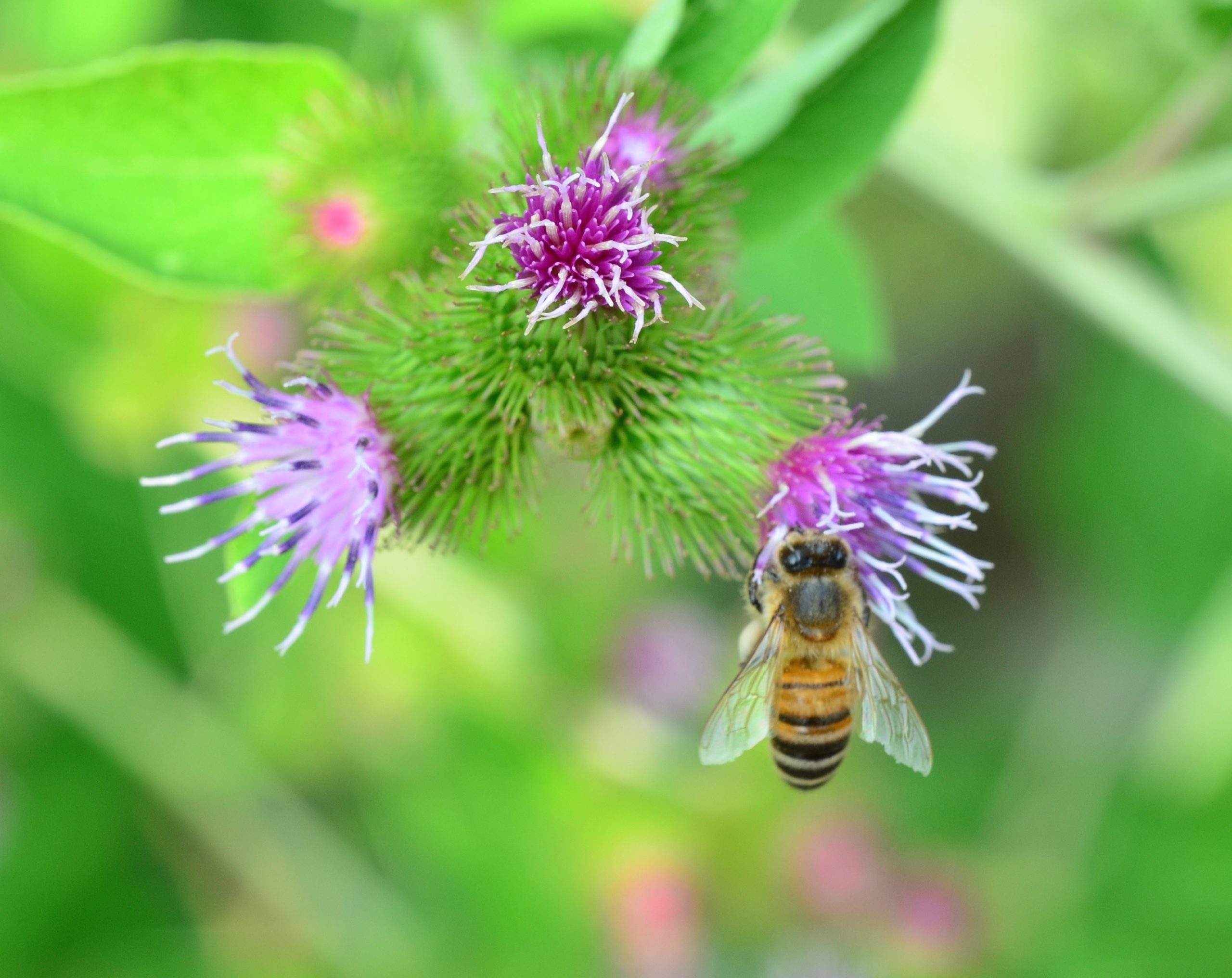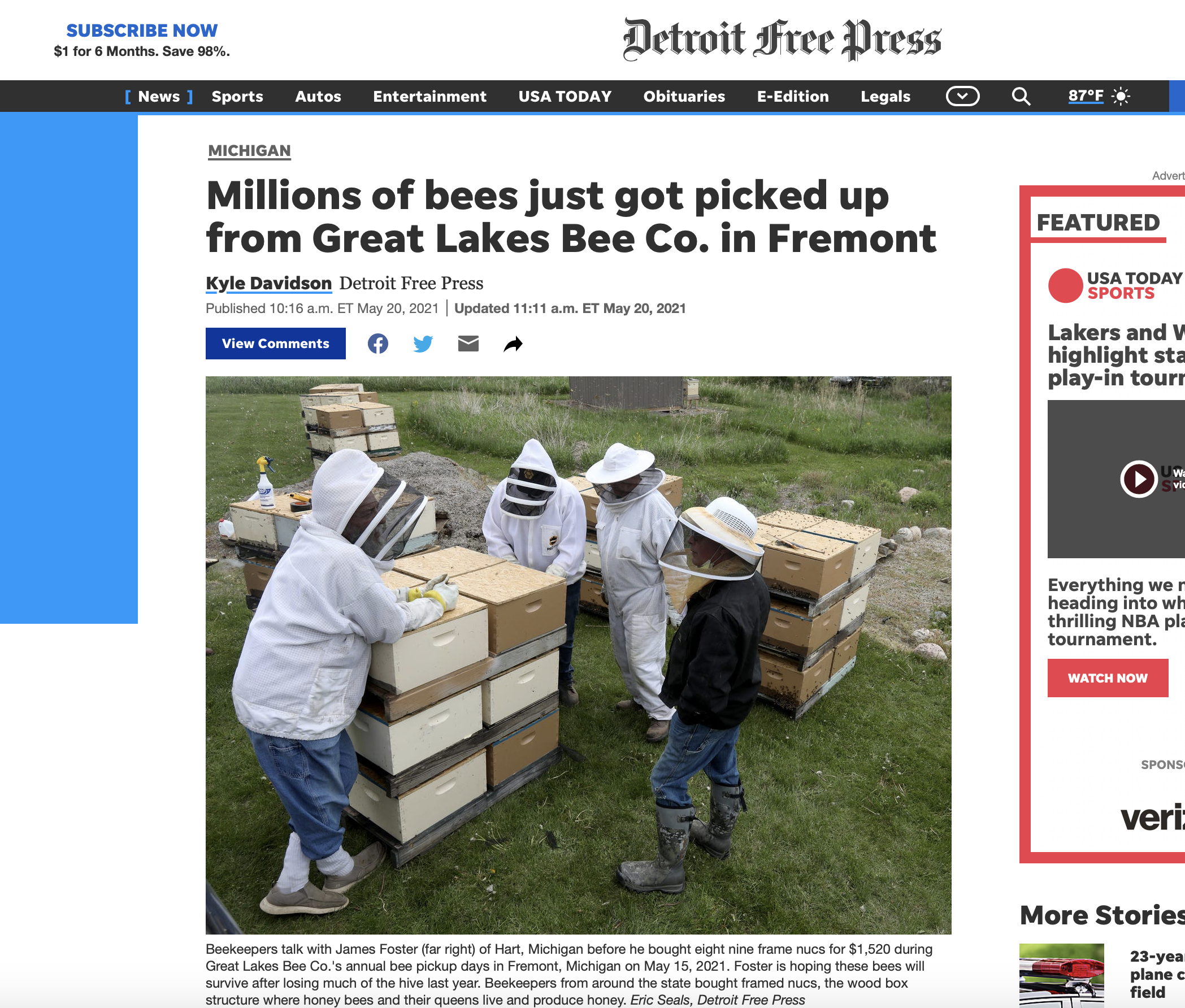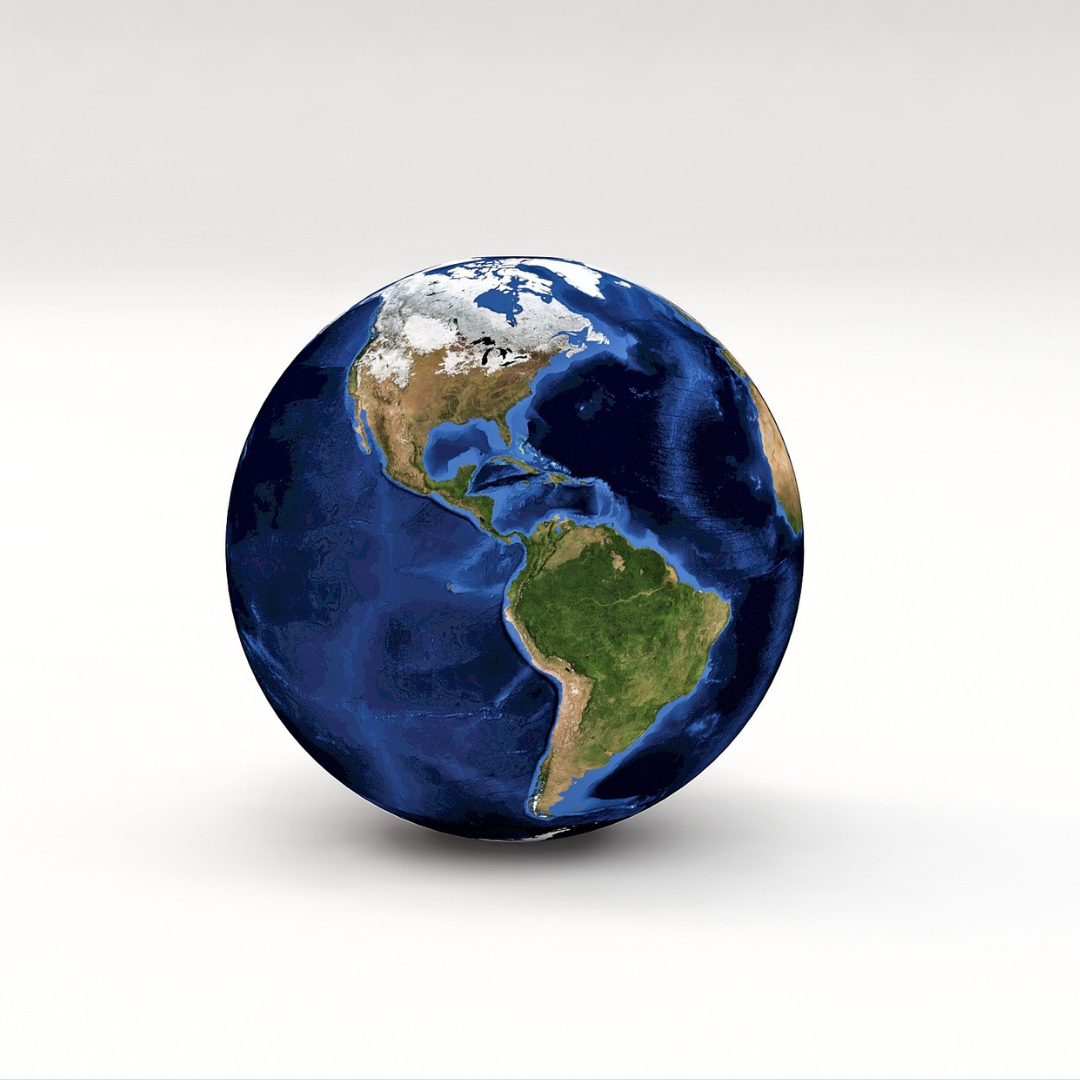
Spring has sprung! Now that bees will soon be getting to work in their hives, you can put in some extra work for them too! Many beekeepers are natural garden tenders. But you can support our buzzing pollinators even without a green thumb. Just purchase wildflower seeds for easy planting, or follow the suggestions below for a more in-depth look at your garden!
- The most important detail for maintaining a bee-friendly garden is avoiding chemicals. That means no pesticides or herbicides, which are toxic to bees and can negatively effect plants and other beneficial insects.
- To encourage bees and other pollinators to visit your garden, you can provide bird baths, a dripping hose, sugar water, or any shallow water source.
- We suggest planting flowers with steady blooms from spring until fall to keep your bees in the garden across seasons. Some of these include:
- Black-eyed Susan
- Coneflower
- Shasta daisy
- English lavender
- Threadleaf coreopsis
- Catmint
- Reducing weeding will also provide a very important food source for your bees, which includes dandelions, clovers, and milkweed. These are not only tasty for honeybees, but they protect your soil and benefit the microorganisms that live there. Like they always say, “bountiful life below means plentiful life above.”
- If you’d like to focus on seasonal specific planting, these are some of your best options that are favored by bees:
- Spring season (April-late May): bluebell, pussy willow, dandelion viburnum, dicentra, crocus, lungwort
- Early summer (early June through late July): poppy, campanula, globe thistle, comfrey, allium, thyme, borage, hollyhock, sweet pea
- Late summer (late July through early September): honeysuckle, Echinacea, sedum, buddleia, cornflower, foxglove, nasturtium, ivy
- Flowers are not the only beneficial plant to keep in your garden. Fruits, vegetables, and herbs can also be pollinated by bees, which in turn will increase your chances for an excellent harvest. Flowering produce include:
- Pumpkin
- Broccoli
- Squash
- Cucumber
- Tomato
- Watermelon
- Strawberries
- Blueberries
- Basil
- Sage
- Thyme
- Lastly, shrubs and trees can also be grown to help your bees. Consider including black cherry and red maple trees, as well as elderberry, blackhaw, and buttonbushes in your garden for diversity in your greenery.
According to the U.S. Fish & Wildlife Service, as of 2020 there are more than 70 species of pollinators currently listed as endangered or threatened. Providing flowers and vegetation for the bees in your hive as well as local wild pollinators will benefit not only your garden but also nature at large!



